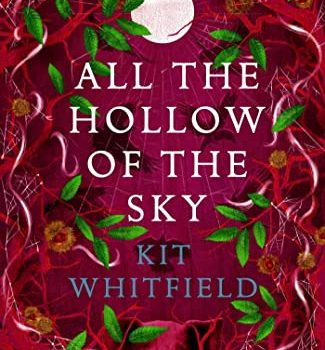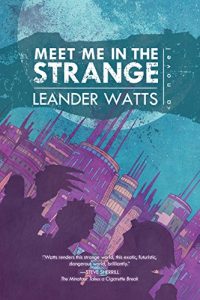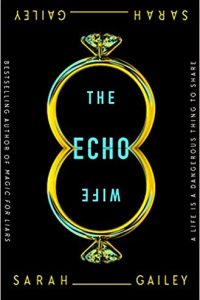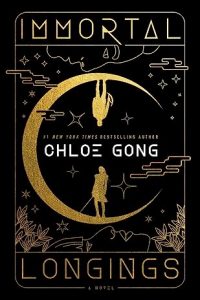Niall Harrison Reviews All the Hollow of the Sky by Kit Whitfield
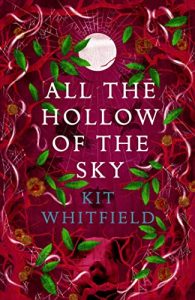 All the Hollow of the Sky, Kit Whitfield (Jo Fletcher Books 978-1-52941-493-6, 622pp, £25.00, hc) May 2023.
All the Hollow of the Sky, Kit Whitfield (Jo Fletcher Books 978-1-52941-493-6, 622pp, £25.00, hc) May 2023.
All the Hollow of the Sky earns its 600 pages because Kit Whitfield gets the voice right. Like her earlier and World Fantasy Award-nominated novel In Great Waters (2009), it is set in an alternate medieval England, but where In Great Waters was a densely argued alternate history of European politics (with merfolk), All the Hollow of the Sky tells the story of one family of fairy-smiths in Gyrford, a fictional Midlands village, and takes almost twice the page-count doing so. There is almost no sense of a larger world to provide context, nor, although the events described span nearly a century, any social or technological change; the story could perhaps take place anywhen from four to eight hundred years ago. But the beautifully composed omniscient narration – along with two important interludes of equally well-controlled first-person – is itself an absorbing and authoritative creation. It is precise in its deployment of local dialect and archaisms, flexible enough to accommodate both digression and directness, and attentive to both light and shade without flinching. It repays trust.
A scene from about a third of the way through the book illustrates Whitfield’s control of tone. A young Jedediah Smith is looking into the killing of a farmer’s sow. He is accompanied by a younger boy, Franklin, whom he has taken under his wing, and he is becoming inconveniently smitten with the farmer’s daughter, Louise. Over the course of a few pages, Jedidiah inspects the grisly pig corpse (“strings of organ stuck to its dark insides like the burned scrapings of an overcooked stew inside a pot”), struggles with feelings for Louise (“as if she carried a layer of clean air around herself”), then finds and negotiates with a deeply creepy spider-fey in the old barn (“a throatless voice… a whistle of a thing, like the sound of air sighing over the lip of a jug”) which, when left momentarily unattended, casually rearranges Franklin’s anatomy (“Franklin himself didn’t appear to feel that anything was wrong… His arms and hands had been attached to his waist; his mouth was fringed with a flexing spray of fingers and toes”). Darkness, lightness, horror, comedy, all in one scene, all vividly expressed (“flexing spray” is such an effective turn of phrase).
Before and after this scene, Jedediah’s relationship with his father, Corbie, is the axis around which the novel turns. Jedediah’s grandfather Clem, it turns out, was kind to and was therefore befriended by a fairy called Ab – the first section of All the Hollow of the Sky could almost stand alone as witty tragedy about the problems that can be caused by the gifts of a fairy who is desperate to repay a debt – and the upshot is that Clem has only daughters, and most of those are in some way changed. Fairy-smithing is a craft passed down from father to son, so one of Clem’s daughters is married to Corbie, a farrier from a neighbouring clan. Corbie is skilled, and binds Ab inside a tree as well as solving numerous other problems, but is also insecure, unhappy, and cruel. He resents Jedediah – who reacts against everything his father is by growing up into a dependable and protective man – and when he ultimately leaves the village in somewhat mysterious circumstances, it is a relief, and Jedediah does not expend too much energy looking for him, particularly after Louise dies young and he takes the weight of the world on his shoulders. Forty years later, Corbie returns to the village, the same age as when he left – and Ab has been released as well.
In the intervening time, Jedediah raised a straightforwardly honorable son, Matthew; Matthew in turn married Janet, and had a family, including John, the curious current apprentice fairy-smith. This is the clan as we met them in Whitfield’s previous novel, The Heart of Hidden Things (2022), where they solved someone else’s fairy-problem, which made for what struck me as a readable but skippable story. You can and should jump straight in with All the Hollow of the Sky, which reintroduces all the characters, is a warmly polished execution of the voice, and – crucially – is a story directly about the family themselves, which raises the stakes considerably. What the two novels share is a concern with the meaning of justice in a world that contains both structural and capricious injustice; put another way, Corbie and Ab are two parts of the same dilemma. The novel’s answer resides in community, in the variety of perspectives a community provides (notably, neurodiverse perspectives), and in working together. Not that any of it is easy – as the omniscient voice tells us, sounding like the voice of Gyrford itself, “the notions of justice, for men, are difficult and painful” – but there is the chance to do right, to heal situations or bring better ones into being. But that just means it’s not a fairy tale: it’s life.
In Niall Harrison’s spare time, he writes reviews and essays about sf. He is a former editor of Vector (2006-2010) and Strange Horizons (2010-2017), as well as a former Arthur C. Clarke Award judge and various other things.
This review and more like it in the August 2023 issue of Locus.
 While you are here, please take a moment to support Locus with a one-time or recurring donation. We rely on reader donations to keep the magazine and site going, and would like to keep the site paywall free, but WE NEED YOUR FINANCIAL SUPPORT to continue quality coverage of the science fiction and fantasy field.
While you are here, please take a moment to support Locus with a one-time or recurring donation. We rely on reader donations to keep the magazine and site going, and would like to keep the site paywall free, but WE NEED YOUR FINANCIAL SUPPORT to continue quality coverage of the science fiction and fantasy field.
©Locus Magazine. Copyrighted material may not be republished without permission of LSFF.


